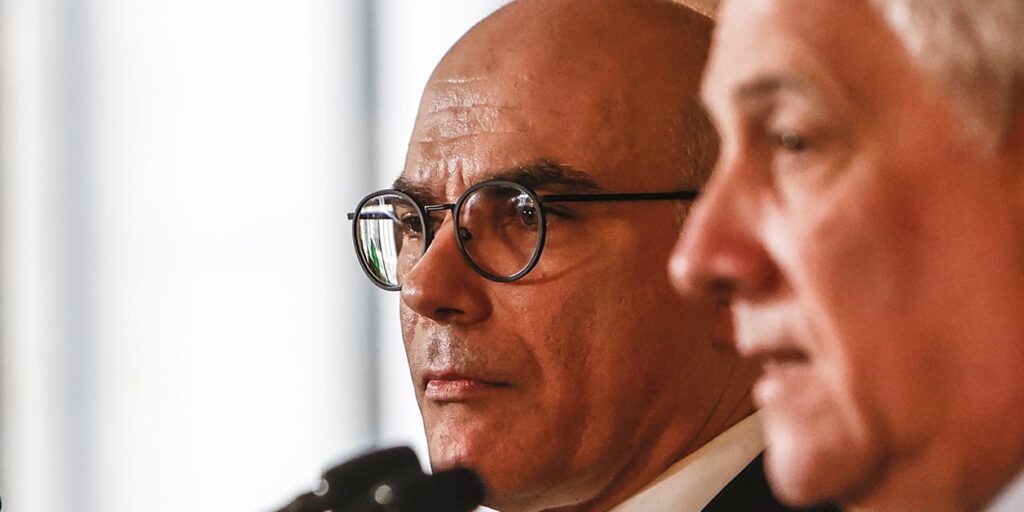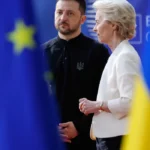European pressure, lack of cooperation from Algerian and Libyan neighbours: in a context of humanitarian tragedy, the dialogue between Tunis and its interlocutors has so far yielded hardly any results.
The July 7 telephone conversation between the Tunisian Minister of Foreign Affairs, Nabil Ammar, and his Libyan counterpart, Najla al-Mangoush, was intended to be reassuring and emphasized, with regard to the migration crisis, “the need for respect human dimension and noting that these migrants are above all victims of organized crime networks and human trafficking”. Less than 48 hours later, sub-Saharans were deported to the buffer zone on the border between Tunisia and Libya and Tripoli toughened its tone by strengthening its security system along the border sector.
“Human dimension”? There is either a misunderstanding or a lack of communication, the latter being precisely one of the weak points of the Tunisian government. The non-event says a lot about the loneliness of the long-distance runner experienced by Tunisia. Libya is shutting down and Algiers is silent. Yet the three brother countries, neighbors and friends are on the same side, well almost: the production of hydrocarbons undoubtedly makes the difference.
“The bilateral is also stumbling,” says a diplomat who has seen others in Tunisia. Although the country is restarting a diplomatic movement, practically at a standstill since 2022, the opinion of heavy weather on foreign relations does not surprise anyone. Question of atmosphere: suspicion towards foreign powers has never been so strong.
IMF requirements
The conspiracy theory has made many followers, convinced that Western capitals “wish to change the course of the country’s destiny”, in other words, to influence the orientations chosen by President Kais Saïed. A distrust fueled by accusations of collusion with foreign powers brought against certain opponents arrested since February 2023. Their fault, for the most part, is to have met or received diplomats. Now is the time for accusations of treason.
Among the traitors, those of the word given and not kept. The loan of 1.9 billion dollars (then nearly 1.95 billion euros), granted in October 2022 by the International Monetary Fund (IMF) but never released, has become a real affair of state, or rather a a matter of national pride for the Tunisian president, who refuses to bow to the diktats of donors or other international organizations, which he reduces to a question of national sovereignty. It is above all a symbolic position where the IMF conditions its loan to reforms. An implicit call to return to the foundations of democracy, which the country has lost sight of since Kaïs Saïed’s offensive on power on July 25, 2021.
Conditions that the Tunisian president – who is not ready to make any concessions and has real popular support for him – feels like an offense. He therefore prefers to call on Tunisians “to rely on themselves”.
However, the principle of sovereignty put forward by the authorities shows a certain elasticity. For example, no one is talking about any interference whatsoever when the American ambassador to Tunis, Joey Hood, inaugurates, on July 12, a sports complex in Fouchana (Tunis region) fully equipped by Usaid in the presence of the governor of Ben Arous, Ezzedine Chelbi, fervent supporter of the Tunisian president. Similarly, when in recent weeks, he inquires with Leïla Jaffel, Minister of Justice, and Ali Mrabet, Minister of Health, about the support that the United States could provide to their department.
No protests against interference either when Europe comes to offer the tenant of Carthage a package offering financial support in exchange for drastic control by Tunisia of migratory flows from its territory. A proposal that Kaïs Saïed finally declined, in his own way, repeating that Tunisia was not “intended to be the border guard of third countries”. It seems that European, or more precisely Italian, leaders pretended not to have heard or understood him. However, the Tunisian president did not feign his intransigence, even if, according to certain observers, this refusal was only a way of pushing Europe to revise its offer upwards.
Distended relationship
Effective tactic? This seems doubtful: if the Italian side, at the initiative of this European approach, initially assured that the discussions were not broken and that they were continuing behind the scenes, the tone subsequently changed. Since June 30, the President of the Italian Council, Giorgia Meloni, and her Minister of Foreign Affairs, Antonio Tajani, have put a damper on their interventionism, in particular with the IMF, to come to the aid of a Tunisia on the verge of collapse. they’ve been predicting for six months, and relations with the peninsula have taken a hit.
Officially, Matteo Piantedosi, Italian Minister of the Interior, still claims to be optimistic about the signing of the famous agreement between Tunis and Brussels. Only he does not say everything: “Nothing new about discussions with Tunisia on a memorandum of understanding, things are at the same point as in previous weeks, without confirmation of any meeting”, declared of his side, during her daily press briefing on July 12, Dana Spinant, the spokesperson for the European Commission. It remains to be seen whether the arrival of Sahbi Khalfallah, Tunisia’s new ambassador in Brussels, is likely to change the situation.
Italy, which remains on the front line in the negotiations between Europe and Tunis, continues to hope. But it is also playing a game of trouble: Giorgia Meloni recently appropriated the idea, initially formulated by Kaïs Saïed, of an international summit on migration and announces, drum beating, that it will take place on July 23 in Italy, without making any mention of the Tunisian president. A casual attitude and a strategic error. It would have been more promising for Tunisia to host this event, for it to be able to influence decisions as a territory that sends and receives migratory flows.
It could also have allowed the sub-Saharan and Maghreb countries to dialogue and find solutions together that do not seem to have been prompted by Meloni or other European leaders, who do not seem to understand much about the continent, nor about migration. And persist, for example, in not wanting to see that one of the keys to the crisis lies in the existence of mafia networks that operate real human trafficking.
This article is originally published on jeuneafrique.com







